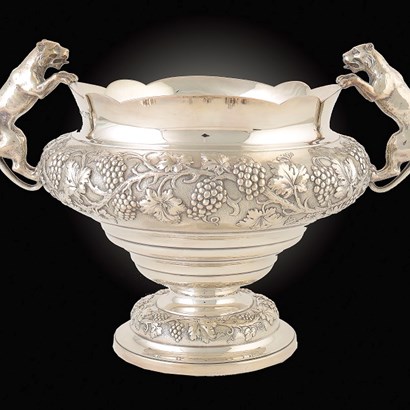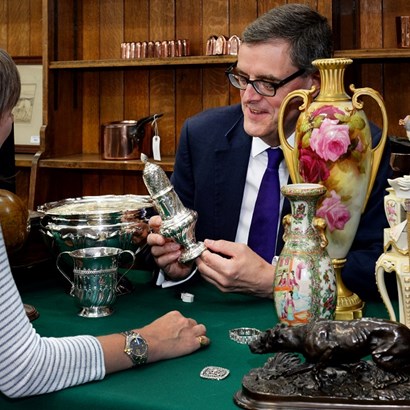Auction Insights
How do you know if you can trust an antiques dealer?
Stuart Porter recently hit the headlines for all the wrong reasons. The 57 year old Stamford antiques dealer was recently jailed for 5 years and 4 months at Lincoln Crown Court. He was described by the judge as “a plausible and engaging conman.” Porter’s is only the latest in a long list of horrendous court cases involving members of the antiques trade. I have met a great many dealers over the years and whilst many claim to have ethical standards of conduct, being members of trade associations, some consider cases like Porter’s to be the tip of an iceberg. Whether you have cash to invest but especially if you have antiques to sell, following a few simple precautions could save you a fortune and avoid much misery.
Many dealers work incredibly long hours, often in all weathers and travelling constantly. Few, perhaps even fewer these days get rich quick, if ever. Perhaps that is what tempts some to overstep the mark, although it is usually pure greed.
In his high class antiques centre in one of the loveliest towns in England plenty of people chose to deal with Porter so here are my four top tips for dealing with the dealers, in order of importance:
- Never, ever allow uninvited ‘door knocker’ dealers into your house, especially if there are two of them. You are immediately placed at a disadvantage and could well become a victim of distraction theft. Many of these individuals are well known to the police and I know the names of several who have criminal records. In the old days one scoundrel would appear at remote farmhouses asking to buy feather mattresses, not because they wanted them but as a means to walk right through the house to the upper rooms, seeing everything they could en route. Another favourite ruse is to offer a high price for a cheap item to win the seller’s confidence, paying a ‘deposit’ and taking another seemingly cheap object away whilst promising to return later and pay the balance. The seller would be waiting a very long time indeed! It may sound obvious, but people don’t expect to be cheated in their own home and this is what these disgraceful traders are counting on. Even worse, there are few prosecutions because of the obvious difficulties over evidence. The perpetrators often target the vulnerable (I even know of a blind victim), the elderly and those that live alone.
- If you have items to sell find out exactly what they are and the value. You cannot assume one, several or any dealer will know or be willing to pay a reasonable price for your goods. Mellors & Kirk and other specialist auctioneers offer free, independent advice to people who are considering selling, without pressure or resorting to such old favourites as pulling out wads of cash. Remember the idiom ‘bird in the hand’, but the other way around!
- However friendly he or she may appear the dealer is out for him or herself and you have no reason to fear saying “No”. You could always ‘phone a friend or say “I’ll think about it.” Once you have parted with the items the chances of getting them back are slim and even if you ring the dealer the next day you’re likely to be told “I’m so sorry I’ve sold it.” There is no cooling off period as with other financial transactions unlike in many other countries. I think such a law is long overdue in the UK.
- Tread warily if dealing with dealers who also trade as auctioneers. Common-sense should dictate that this offers the most blatant conflict of interests. Such companies often specialise in coins and stamps and usually set up shop in a hotel in towns and cities like Nottingham for a few days at a time, once or twice a year. Auctioneers, especially those regulated by the RICS or members of SOFAA will maintain a clients’ bank account and act solely as the agent of the seller, so why deal with those with dubious practices?
Every trade has its share of eccentrics or colourful cowboys on the one hand and downright ‘rotten apples’ on the other, but when it comes to art, antiques and jewellery the stakes can be very high indeed. Sailing close to the wind or living by their wits adds greatly to the charisma of some well-known faces, I’m thinking of Lovejoy as an example of the former and the sharp suited David Dickinson as an example of the latter. David’s expertise, which is considerable and long experience has been gained by many years of handling antiques and risking his own cash. The same is true of other celebrity antiques experts. That leaves some devotees of shows such as Beat The Dealer, Flog It! and Antiques Road Trip to think dealers and for that matter auctioneers will be pretty much what they expect from the TV. For their trade persona to be sanitised in this way other less admired groups – politicians and estate agents take note – would pay a fortune!
< Back to Auction Insights



